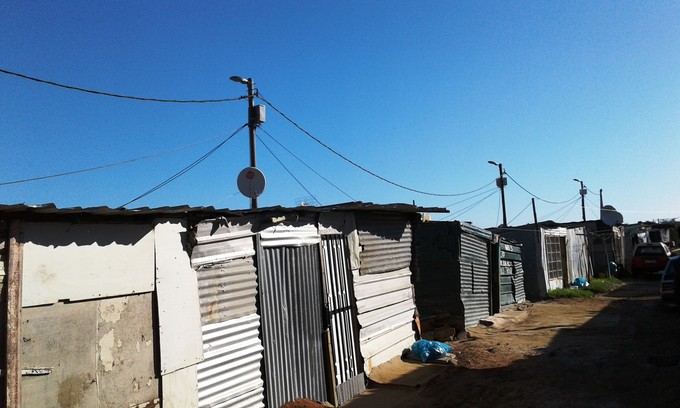Masiphumelele kept in the dark
City says it’s not safe to repair streetlights
Parts of Masiphumelele have been without street lights for more than a month, leaving many streets and informal sections in the dark. This is nothing new to a community that has often had to go for months without repairs.
Community leader at the Wetlands Informal Settlement in Masiphumelele Brian Nompunga said, “It is winter now and people need the electricity to keep warm, but the biggest problem we are faced with is that with no street lights, there is an increase in crime; people see an opportunity, because it is dark, especially as people go to work in the early hours and come back late.”
On 4 June, a 16-year-old girl was dragged into a dark alley, where the streetlights have been out for a month, and brutally raped. She crawled in the dark to the nearest house for help.
Mayoral Committee Member for Utility Services Ernest Sonnenberg said last week that officials from the City’s Electricity Services Department were on site attending to the broken street lights in Masiphumelele from Friday 10 June, and that the repair work would continue for the rest of the week.
But on 20 June, lights in many streets were still not working.
“The Department has to exercise caution in performing work in the area as there have unfortunately been threats made to the lives and general safety of staff, as well as to the safety of vehicles and equipment. The City receives frequent alerts of unrest in the area which it must heed,” said Sonnenberg.
The last unrest in Masiphumelele was on the 3 May when the community shutdown the township and no cars were allowed to come in or go out of the community. Since then, there have been three peaceful marches to Simon’s Town Magistrates’ Court in support of people arrested during the protests last year.
Nompunga said the problem is not only with street lights in the area. Some households also did not have electricity.
“A contributing factor to the reported outages in Masiphumelele (which affects street lights) is the high incidence of illegal connections, which results in the circuit breakers tripping due to overloading or the electricity reticulation infrastructure deteriorating at an accelerated rate,” said Sonnenberg.
Support independent journalism
Donate using Payfast

Don't miss out on the latest news
We respect your privacy, and promise we won't spam you.
© 2016 GroundUp. 
This article is licensed under a Creative Commons Attribution-NoDerivatives 4.0 International License.
You may republish this article, so long as you credit the authors and GroundUp, and do not change the text. Please include a link back to the original article.

